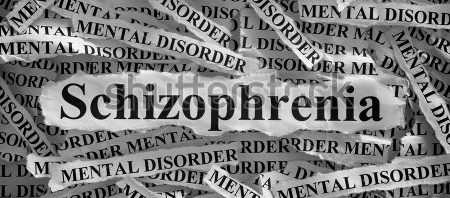It is safe to say that Schizophrenia is one of the most mysterious, misunderstood, and feared mental disorders today- both scientifically and socially. As our medical world is rapidly advancing, the search for the driving mechanism of action and effective treatments for this disease are being researched studiously. Even with current medicinal treatments though, the complexity of this disease still challenges researchers today. Similarly, as a mental disorder that often leads to social isolation, decreased ability to live independently, and odd behaviors, stigmatizing attitudes about Schizophrenia are incredibly common among society today.
However, far beyond all the intricate scientific details, lost in the darkness of stigmatizing beliefs, is a normal human being, deserved to be treated like any other.
Background
Schizophrenia is a severely debilitating mental disorder that affects how a person thinks, feels, and behaves. According to the National Institute of Mental Health (NIMH), approximately 1 in 100 people have Schizophrenia, which equates to about 26 million people worldwide. There are three types of symptoms that individuals with Schizophrenia can experience: positive, negative, and cognitive. Some of the most common include hallucinations and delusions, flat affect and withdrawal from social activity, and trouble with organization of thoughts and memories.
Though we know a lot of Schizophrenia, there are still many common misconceptions today that place a negative view on those suffering from the disorder. Three of the most popular and stigmatizing myths are discussed below.
Myth 1: People with schizophrenia are dangerous.
Most people with Schizophrenia are not violent, and most violent crimes are not committed by those with Schizophrenia. Of the little violence committed by those with Schizophrenia, it is often due to the individual having another comorbid disorder such as Substance Abuse Disorder and those with a past of Childhood Conduct Disorder. The real concern is the number of individuals with Schizophrenia that are a harm to themselves. It is estimated that 1 in 10 individuals suffering from Schizophrenia will take their own lives, with even more
Myth 2: People with schizophrenia are not smart.
Though some studies have supported the idea that individuals with Schizophrenia have more trouble on mental tasks such as attention, learning, and memory, there are also a number of studies that are looking at links between psychosis and creativity. Similarly, there have been many successful and intelligent individuals who become diagnosed with Schizophrenia, and in years later maintain their same IQ from before diagnosis.
Myth 3: People with schizophrenia alienate themselves.
Schizophrenia has been described as the most alienating disease. Social isolation is a common symptom of Schizophrenia and can either be connected to their psychosis, or due to the experience of anhedonia. However, just because it is a common symptom, does not always mean it is by choice that they isolate themselves. With the right encouragement, social interactions can be incredibly helpful, specifically in keeping individuals with Schizophrenia connected to reality.
So, I dare you. Next time, before you are quick to judge, just think.
What would it be like to experience the constant noise of inner voices that will not leave you alone? What would it be like to believe that you are constantly being tricked or fooled by the people surrounding you? And what would it be like to know that some people think you are crazy?
As Dr. Seuss once said, “A person’s a person, no matter how small.”
Out of the Darkness: The Truth About Schizophrenia
